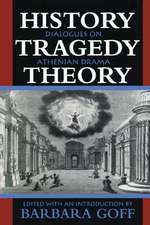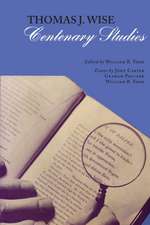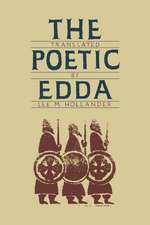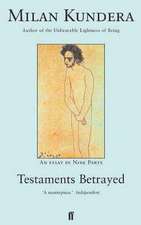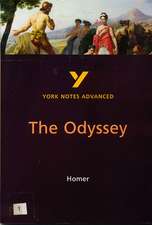The Ethics of Intensity in American Fiction
Autor Tony Hilferen Limba Engleză Paperback – mar 1981
Hilfer contends that there was a significant change in the mode of character presentation in American literature of the late nineteenth and early twentieth centuries. The self defined in terms of a Victorian ethic and judged adversely for its departures from that code shifted to the self defined in terms of emotional intensity and judged adversely for its failures of nerve. In the first mode, characters are almost always wrong to yield to desire; in the second, characters are frequently wrong not to and, in fact, are seen less as the sum of their ethical choices than as the process of their longings.
His conclusion: modern fiction is as overbalanced toward pathos as Victorian fiction was toward ethos. but the continued dialectic between the two is a tension that ought not be resolved.
Preț: 203.73 lei
Nou
Puncte Express: 306
Preț estimativ în valută:
38.99€ • 40.55$ • 32.19£
38.99€ • 40.55$ • 32.19£
Carte tipărită la comandă
Livrare economică 14-28 aprilie
Preluare comenzi: 021 569.72.76
Specificații
ISBN-13: 9780292741133
ISBN-10: 0292741138
Pagini: 224
Dimensiuni: 152 x 229 x 15 mm
Greutate: 0.45 kg
Editura: University of Texas Press
Colecția University of Texas Press
ISBN-10: 0292741138
Pagini: 224
Dimensiuni: 152 x 229 x 15 mm
Greutate: 0.45 kg
Editura: University of Texas Press
Colecția University of Texas Press
Notă biografică
Anthony Channell Hilfer (1936-2008) was professor of English at the University of Texas at Austin.
Cuprins
- Acknowledgments
- Preface
- Introduction
- 1. Ethos vs. Pathos
- 2. Pragmatic Philosophers and Realistic Novelists
- 1. The Ethical Imperative: “Self, Self, Self” in Victorian Fiction
- 1. “Self”
- 2. Religious Humanism
- 3. Renunciation
- 4. The Psychology of “Self”
- 5. The Analysis of “Self”: Romola
- 6. The Reaction from Analysis: The Cat on the Vivisection Table
- 2. Whitman’s Body: Kinesthetic Imagery and Sexual Pathos in “Song of Myself”
- 1. Dissociations
- 2. Reconstitutions
- 3. A Modern Instance: Pathos Subordinated to Ethos
- 1. Whitman and Pathos, Eliot and Ethos
- 2. Physical Signs as Ethical Signs
- 3. Community Ethos: Ideal Motivations
- 4. Tropisms: Real Motivations
- 5. Bartley’s Reveries: The Ethical Structuring of Consciousness
- 6. Conscience as Inner Debate
- 7. Negative Essence and False Consciousness
- 8. Marital Realpolitik and the Stages of Degeneration
- 9. Chance, Timing, Rhythm
- 10. Punitive Tragedy
- 4. Henry James: An Ethics of Intensity
- I. “The Beast in the Jungle”
- 1. “A Great Negative Adventure”: Irony and Sympathy
- 2. Marcher as Solipsist: The Ethics of Intensity
- II. The Wings of the Dove
- 1. Self and Other
- 2. Social Construction: Pseudo-Selves
- 3. Social Construction: The “Original Fun of Mistakes”
- 4. Performance
- 5. The Biological Imperative
- 6. The Construction of a Personage
- 7. The Larger Self
- I. “The Beast in the Jungle”
- 5. Dreiser: Pathos as Ethos
- 1. Dreiser’s Barbaric Naturalism: The Ethical Attack
- 2. Pathos as Ethos
- 3. Dreiser’s Platonism: “When I Read Spencer I Could Only Sigh”
- 4. Carrie’s Face: The Natural Expression of Longing
- 5. Dreiser and Howells: Two Modes of Realism
- 6. An American Tragedy: Sympathy and Discomfort
- 6. Stein’s “Melanctha”: An Education in Pathos
- 1. Stein as Radical Empiricist
- 2. Understanding Wandering
- 3. Real Experience: “The Squeeze of This World’s Life”
- 4. Melanctha and Jeff: Pathos vs. Ethos
- Conclusion
- Notes
- Index
Descriere
Drawing upon the philosophical theories of William James, Dewey, and Mead and focusing upon major works by Whitman, Stein, Howells, Dreiser, and Henry James, Anthony Hilfer explores how these authors have structured their characters' consciousness, their purpose in doing so, and how this presentation controls the reader's moral response.








